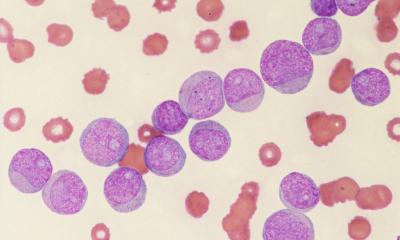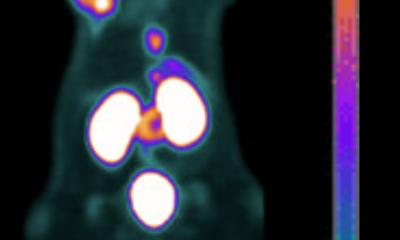Researchers at Rigshospitalet find markers for testicular cancer
A team of researchers at Rigshospitalet has found a new and simple way of detecting testicular cancer before it starts. This discovery will benefit patients in both Denmark and abroad.


Previously, suspicion of testicular cancer meant that a patient had to be subjected to one or two painful biopsies, and despite a 95% survival rate, the testicular cancer diagnosis meant having to go through treatment that could be extremely hard on the body. However, researchers at Rigshospitalet have found a method by which physicians can now detect the disease before it develops, via a simple sperm sample.
"So far, we have lacked knowledge about the markers that can reveal early stages of testicular cancer. Now we have found these markers, and we are therefore able to see from a simple sperm sample whether a patient will develop testicular cancer. In this way, we can provide treatment for some men who would otherwise not have found the disease until much later, and we can set in at an earlier stage, and with a more gentle treatment. This is beneficial in particular for men with testicular cancer, because they are usually hit by the disease as early as in their 20s or 30s, which means they have a long life ahead of them with possible late complications from their cancer treatment. Furthermore, we can assume that, in the long run, this means a better chance of survival for testicular cancer patients," says Kristian Almstrup from the Department of Growth and Reproduction at Rigshospitalet.
Poor sperm quality can indicate cancer
Men with poor sperm quality, in particular, who consult the hospital because of fertility problems, are being examined to detect possible early stages of testicular cancer. According to the researchers, poor sperm quality and predisposition to testicular cancer can be traced all the way back to foetal germ-cell development.
"We believe that the basis for testicular cancer occurs as early as in the foetal stage. Disruptions in foetal development of the testicles can, if mild, cause reduced sperm quality, or, if severe, cause precursor cells of testicular cancer. Previously, we had to perform a biopsy to detect these precursors, which today we can detect by merely analysing a sperm sample," says Kristian Almstrup.
Experience shared in Europe
The research team, which in addition to Senior Researcher Kristian Almstrup, consists of Prof. Consultant Niels Erik Skakkebæk and Head of Research Ewa Rajpert-De Meyts has developed a special scanning microscope and software which can analyse sperm samples. The discovery has attracted much attention from colleagues abroad.
"So far, we are cooperating with researchers in Norway, Germany and Poland, who can make use of our discovery in different ways. The equipment is expensive, so to begin with we are helping by analysing their samples, but in the long term we would like to join up with a company that can supply a total kit for use by other researchers and physicians in different European countries," says Kristian Almstrup.
Experience from international cooperation is good according to the team.
"We have concentrated extensively on assisting other researchers and physicians on their own terms. In Norway, for example, a biopsy is not taken of both testicles, so even if they find cancer in one testicle, possible cancer in the other testicle is not addressed. In Germany, they always take two biopsies, just to be safe. Therefore, we can help both countries in different ways. In Norway, we can help by providing them the opportunity to detect any cancer in the other testicle, without having to take further biopsies, and in Germany, we can help detect more cases of testicular cancer in men who only come to have their sperm quality analysed. We therefore have real good experience from cooperating with researchers in other countries, instead of just imposing our way of doing things on them," says Kristian Almstrup.
24.05.2012





